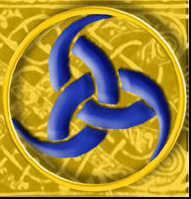
Terms of
Use
Submissions
~ Tips for Poets ~
 ""What
is written without effort is in general read without pleasure."
""What
is written without effort is in general read without pleasure."
- Samuel Johnson
"I am aware of being in a beautiful prison from which I can only
escape by writing." - Anais Nin
III. Some Good Advice
1. Before you start writing
Some of this might, at first sight, sound
self-evident.
You
possibly do some of this already, one way or another, but you may
not
have realized it consciously or thought about exploring it further.
The trick
is to become aware of how many choices you actually have
(and you have a lot!), and how you can make
them work for you best.
1.1 On content and motivation
What do I want to say ?
Springtime. What aspect of springtime ? A camera close-up on a bee and a cowslip ? Spring as part of the endless cycle of death and rebirth ? The spring when I first met my lover ?....
Why do I want to say it ?
- I canīt really say, but inspiration just hit me. - Iīve tried to find a poem that expresses xy, but there is none, so I shall write it. - Iīm grateful to Thor, and I want to make an offering to him. - Thereīs only a zillion of love poems around, everybody has written one, so I just feel obliged to, too... - Iīm feeling blue and want to write it off my soul. - Iīm green with envy because xy has done such a great poem, and I want to do one better. - I have to keep writing because I define myself as a poet, and Iīm secretly scared stiff that Iīll never again write a really good, inspired poem... ;-).
Who is my audience ?
My online friends ? My poetry class? A special person? My religious community at large ? All humankind, posterity ?
Each of those audiences has a different background: knowledge of you as a person; education, experience with literature and poetry; (shared) interests.... Knowing their backgrounds enables you to shape your poem so that it will have the best chance to be understood and liked by them.
Poems that presuppose the audience has specialized knowledge, like Norse Mythology, will interest heathens and historians, but you cannot expect to be recognized as widely as someone who writes about love in general, because the average citizen will think Ottarīs Ransom is a case for the police, and not a synonym for gold. On the other hand, if you do write for a specialized audience, donīt miss the chance to make full use of the corresponding vocabulary and allusions; it makes your poem unique.
1.2 How do I say it ?
Yes, these are decisions you can and should make right at the beginning !
1.2.1 Meter or Free Verse ?
If meter: How rigidly do I intend to follow it, and how many liberties do I allow myself ? Do I know what the meter demands, or had I better check up on the rules? Whatīs Fornyrdhislag again ? Am I prepared to invest the time and trouble it takes to make it technically good ?
If free verse: Be aware that while it seems easier to write in free verse, it is more difficult to produce a good poem that will stick in the readerīs mind.
The advantage of meter is that steady rhythm is a very natural thing for us humans: heartbeat, a clock ticking, music.. we create and actively seek out rhythm. Why do people go into discos? Why do tribes do their dances ? Why is most of our music in a four-beat scheme? Most meters allow you enough internal variety; a rhythm too even is often felt as monotonous and boring.
Writing free verse, or special forms like acrostic, gives you the option to use rhythm and rhyme (rhyme in the broad sense) outside of a recurring fixed scheme. If you dispense with meter and rhythm and rhyme all at once, you very probably end up producing common prose with word wraps, and not a poem, unless your imagery and content can make up for all of that. There is very good prose around - but what makes prose great is, if you look closely, that it makes use of good old rhythm and rhyme.
Form alone doesnīt make a poem either good or bad. Reserve yourself the right to use all forms, as best suits your theme. Be aware though that free verse poems are often looked down upon as "technically primitive". I have to say that many of the ones I come across, are. Thatīs not to say they canīt have very inspired content, or that I donīt like free verse per se. Itīs just a pity that they werenīt honed into a better shape.
1.2.2 What meter ?
Your call. A narrative might ask to be set in ballad form; a humorous poem in endrhyming couplets; four-line stanzas with four or five beats per line go for most of anything. Alliterative meters are good for old-style, solemn works, echoing Old Norse poetry. Blank verse is fine if you want to have a rhythm scheme throughout but donīt want to pin yourself down with endrhyme. Free verse is good for a deliberately modern-day touch; for unpleasant themes, conveying a torn feeling; for echoing the way our brain thinks, with half-sentences and jumps.
1.2.3 How long ?
Shorter poems have a better chance of being read at all, resp. through to the end. You donīt want to emulate Walt Whitmanīs 30 page poem "Song of Myself" which everyone has heard about and nobody read through (I stopped after 10 pages).
My rule of thumb is: Maximum one page, in customary type size. That means about seven four-line stanzas. Regard it as an exercise in terseness (more on that later). Exceptions are ballads, for which I would allow up to two pages.
If you can say it in less, so much the better. Two to five stanzas do well for most themes, or some ten lines of free verse, or two rhyming couplets... Remember the famous shortness of Haiku. It really depends on what you want to tell and express. Youīll get a feeling for it. Just donīt write anything that is not vital to your theme.
Example: Plan stanzas 1 and 2 to set up a situation, 3 and 4 to let the action develop and build tension, 5 to reach the actual climax, 6 to resolve the situation, and 7 maybe as epilogue, referring back to the poemīs beginning, or life in general, and give further food for thought to the reader.
Brainstorm, write down notes, consider everything you think is important or possible for your theme. And then: Choose. Take your pick, define the scope of the poem, and discard all aspects that you will not use this time. If you have the feeling somethingīs left unsaid, write another poem on the subject, from a different viewpoint. No need to cram it all in one.
1.2.5 Pen & Paper or Keyboard ?
Both. Whatever inspires you best. I carry around a
scratchpad almost everywhere. Many of my poems were fully developed on paper (on a
train, cozily tucked in bed..) and only typed when they were almost done. Others
went well on the computer from the start. Writing online has the advantage of
access to dictionary, thesaurus, rhyme-finders, background info for a poemīs
theme.. but this is expendable.
A fine thing is to print out your current version of the poem and make additions
and corrections on the paper.
1.2.6 Inspiration or Perspiration ?
Somebody once said, "Writing is 10% inspiration and 90% perspiration."
A while back, I wanted to write a follow-up on "Fighterīs Farewell". So naturally, it had to be about the glorious arrival of a warrior in Valhall. I thought "Duh, I wouldnīt want to live there - only fighting and eating for the rest of eternity, how dull." Thatīs of course not the mood in which to make progress writing. So I deliberately visualized myself as a warrior who thinks fighting for fightingīs sake is a great way to pass time. And, after a while, I knew what it felt like, and could go on.
So: Carefully planning and doggedly working on a poem often works, even if there was no previous lightning flash of inspiration from the cloudless sky unto your head. Handiwork, technique, visualization, experience, patience: This is the reliable craft aspect of poetry.
Inspiration is rather indefinable, and yet I guess most of us felt it at one
time or another. Maybe itīs the left and right brain-halves working together in
a not-everyday way, creating a flowing trance state of mind; maybe it is Odinīs
breath and a sip from Odhroerir; or both.
We can pray for inspiration, and wait for it. We can seek it out, and try to
force it. Invite inspiration into your life,
be as comfortable of mind and healthy of body as you can be. I have the feeling
that there are different ways and levels of inspiration, and we may not all mean
the same when talking about it. The "big" inspiration hits you out of
the blue, like: "Sit down and write this, NOW!" On some days the
"lesser" inspiration comes perhaps with a little mellow tiredness
before sleeping, or in the phase of staying awake even though youīre dead
tired, and helps you to make good, steady progress with a poem that youīre
working on. Lowering the conscious, censoring guards of our critical self might
play a part in it. Anything that otherwise induces trance or ecstasy might be
able to help.
Still, you have to know how to use and work with the inspiration when it comes.
So, be prepared, and learn the craft :).
Image shows Christina Georgina Rossetti, English poetess (1830-1894).